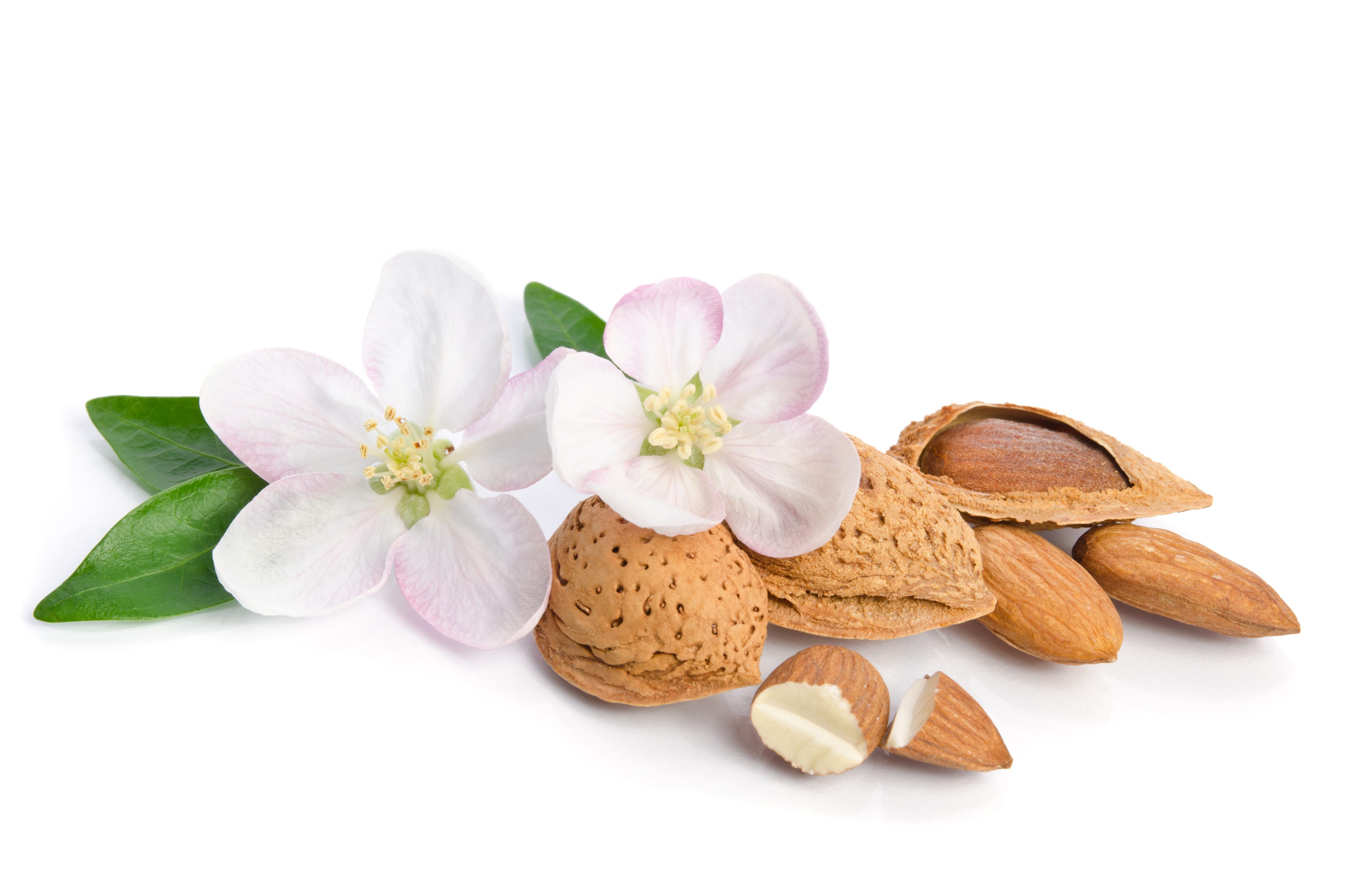Almonds: properties, benefits and side effects
Almonds bring so many benefits to our body thanks to their properties: they fight cholesterol, prevent diabetes and reduce body fat.
;Resize,width=742;)
Almond is the edible seed of the almond tree (Prunus dulcis) belonging to the Rosaceae family and, among the dried fruits, stands out for the high protein content. The plant can reach up to 10 meters and its seeds, almonds, are enclosed within a woody shell. Almonds can be consumed throughout the year: in the spring we find fresh almonds while, for the rest of the year, they can be eaten dry. In Italy, the main producer of almonds is the city of Agrigento, Sicily, although in recent years crops have diminished and many varieties have disappeared.
Properties and benefits of almonds

Let's see the main health benefits of almonds.
High in protein: Almonds have a high protein content and are also suitable in case of malnutrition because they are a complete food and contain less fat than walnuts.
Protect from diabetes: Eat a handful of almonds a day, perhaps as a mid-morning or mid-afternoon snack. They reduce the risk of contracting several diseases such as Type II diabetes as they reduce fasting blood sugar levels. This is mainly due to their vitamin E content.
Combat anemia and osteoporosis: they have a high iron and vitamin content that help cure anemia; not only iron, but also calcium, which is ideal for the elderly and those who suffer from osteoporosis.
Energizers: Almonds are also good because they provide a lot of energy: rich in calcium and magnesium, they're excellent nutritional supplements.
Help prevent heart disease: Vitamin E reduces the risk of heart attacks and unsaturated fats reduce atherosclerotic plaque formation in the arteries.
Lower blood cholesterol: Almonds are perfect for individual with high cholesterol as they have the ability to lower the level of "bad" cholesterol (LDL) in the blood thanks to the oleic acid and the palmitolic acid which, on the contrary, increase good cholesterol (HDL).
Laxatives: Since they are high in fiber, almonds are one of the foods that are natural laxatives in case of constipation.
Gluten-free: Almonds are gluten-free and this makes them an ideal food for those who have celiac disease.
Prevent cancer: Almonds contain a small amount of laethrite, which is considered an antitumor compound. Their consumption reduces the risk of colon cancer.
Reduce fat and make the skin look beautiful: Almonds aid in weight loss and can reduce belly fat. In the cosmetic field, sweet almond oil is used to fight wrinkles and stretch marks as well as the first signs of aging. It is rich in vitamin A, B vitamins, mineral salts and protein that make it an excellent emollient. In addition, vitamin E contained in almonds makes it a powerful antioxidant that can fight free radicals and slow down aging.
Nutritional values

Fresh almonds – Quantity for 100g – 600 kcal
Carbohydrates 20g
Fat 50g
Protein 22g
Fiber 10,5g
Almonds are also rich in vitamins, especially B and E, in addition to mineral salts including:
Calcium 265mg
Ferro 3.7mg
Phosphorous 480mg
Potassium 710mg
Magnesium 270mg
Since they provide a high amount of calories, almonds should be consumed in moderation, not more than 10 or 15 per day, preferably as a snack.
Side effects

Avoid almond consumption in case of herpes. Almonds contain a compound, arginine, that stimulates herpes virus activity. Since they are oily seeds, they should be consumed in moderation by heartburn sufferers because they increase acid secretion during digestion. Even individual suffering from diabetes and those who are overweight should avoid consuming large amounts of almonds. They are also rich in purines, which cause uric acid, and are therefore not recommended in case of gout. Some people are susceptible to nut allergies and should avoid almonds if they have a known allergy or food intolerance. When it comes to bitter almonds, especially when consumed raw, they can cause health problems, so they aren’t recommended for consumption.
How to consume almonds: uses in cooking

Almonds are used especially in pastry-making as an ingredient for the preparation of sweets, cakes, nougat, sugared almonds, almond biscuits. Fresh and unshelled almonds can be stored for several months. To preserve them best, place them in a tightly sealed jar in a cool, dry place, away from light and heat. Using fresh almonds you can prepare almond milk, a very energetic and refreshing drink that is rich in protein and nutrients. It also has antidepressant, anti-inflammatory properties and helps balance mood even though it contains many calories, you should not consume it in large amounts. Almonds are also consumed dry, toasted, sweetened, candied and salted.
Almond chicken
Almond chicken is one of the most famous savory recipes. This is a Chinese recipe that is made with chicken breast, shelled almonds, soy sauce, vegetable oil and shallots. Cut chicken into small cubes and coat in flour. In the meantime stir fry almonds in a pan until lightly browned; set aside. Then put oil in the pan with some shallot and then add the chopped chicken pieces. After a few minutes add soy sauce and almonds. Add 2 teaspoons of sugar and a pinch of salt, then stir fry for another 3 to 4 minutes before serving.
;Resize,width=767;)
;Resize,width=712;)
;Resize,width=712;)
;Resize,width=712;)
